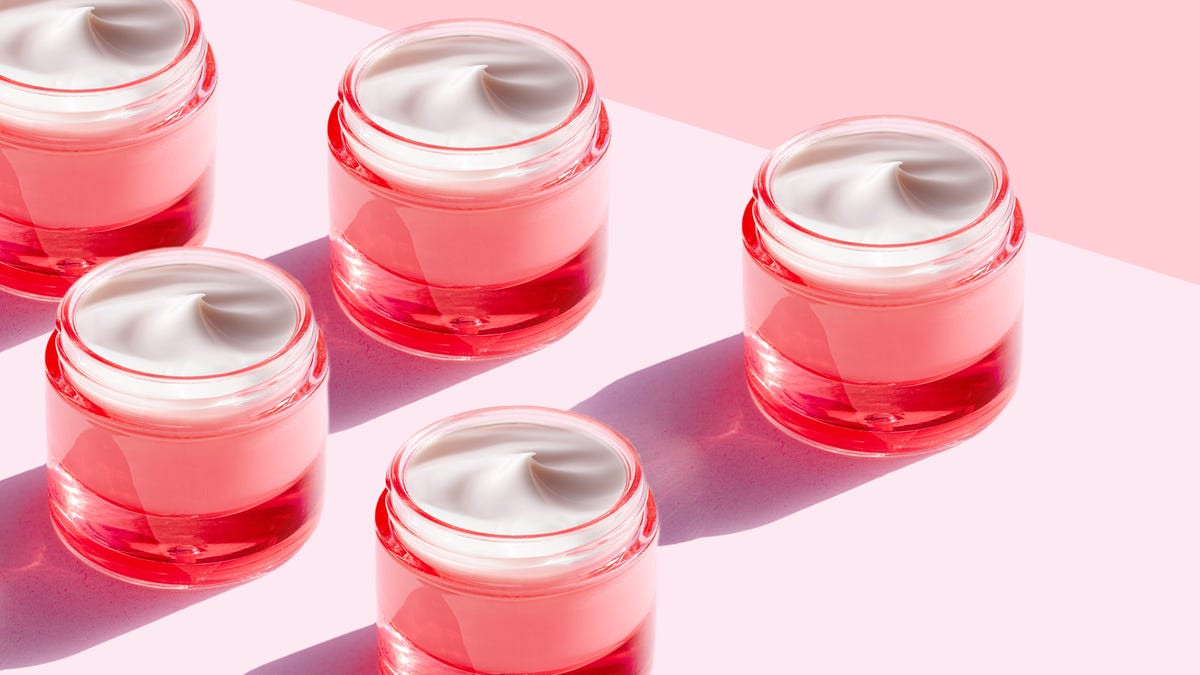Want Healthy, Glowing Skin? You'll Need to Figure Out Your Skin Type First
By finding your skin type, you can develop a skin care routine that really works for you. Here's how to do it.

If you want to achieve the skin of your dreams, first you've got to figure out what you're working with. You might already be familiar with three common ways to identify yourself in the skin care world: dry, oily or combination. But it turns out the real answer is often a moving target.
"I think that people have sometimes made this more complicated than it needs to be," says Dr. Jerome R. Potozkin, a board-certified dermatologist with a private practice in California. Genetics and what we're exposed to on a regular basis can both influence our skin, but above all, age might be the biggest determinant of what our skin type is.
As we age, Potozkin says, we have less oil production in our skin. So even if you had super oily skin as a teenager, you could have drier skin as an adult -- and if you're like the majority of Potozkin's patients over the age of 30, you might say you have sensitive skin.
"That's not to say you can't have some older patients that have oily skin, but as a general rule I'd say as we age with less oil production in the skin, our skin becomes more sensitive," Potozkin says.
All of this to say, you likely won't have the same skin type your whole life, and your skin care routine will probably have to change accordingly.
Read more: Want Better Skin? Here's Where to Start
How to tell what skin type you have
Dry skin: Might be flaky or itchy. Your skin may also have a tight feeling.
Oily skin: Can give your skin a shiny or greasy appearance. You may be more prone to breakouts.
Sensitive skin: Can sting or burn after product use.
Normal skin: Is generally clear and not overly sensitive.
Combination skin: Might be dry in some areas and oily in others.
These are pretty broad categories, though, and stress, how much water you drink and other factors can influence how your skin appears on a day-to-day basis. A person with "normal" facial skin can experience dry skin if they're dehydrated, for example, and a person with "dry" skin can experience acne if they have clogged pores.
Also, everyone might also have a slight "combination" skin profile after all, according to Potozkin.
"Our nose has the highest concentration of sebaceous glands or oil glands, so naturally, you'll have more oil production on your nose than you will elsewhere on your body," he says. This also explains why the pores on our nose can also appear larger than the pores elsewhere on our face.
You might also have a combination of other skin types, like dry and sensitive.
Finding the right skin care routine for your skin type
The generally accepted skin care routine for most people's nights and mornings, regardless of their skin type, is relatively simple: cleanser, moisturizer, sunscreen, check. If you need a refresher, refer to CNET's guide to skin care 101.
Potozkin also recommends a basic skin care routine for most patients: cleansing in the morning and night, a topical antioxidant or vitamin C in the morning, sunscreen and a retinoid at night. Retinoid is a generic term for anything that contains a vitamin A derivative. They've enjoyed an increasingly warm moment in the spotlight over the last few years thanks to the skin tone smoothing and anti-aging benefits they may bring. Products containing retinol are sold over the counter, while products such as tretinoin are stronger and require a prescription.
Also, add a moisturizer that best suits your skin and the hydration it needs after a wash. A younger teen may not even need moisturizer, Potozkin notes, while someone else's skin may be so dry that they may need Vaseline and then some.
There are a few other tweaks to this basic routine depending on your skin type.
For patients with sensitive skin, Potozkin recommends starting with a low-concentration retinol, and building up depending on your tolerance. It's also important to start off with infrequent use and apply sparingly, and consult a dermatologist if you have skin allergies or a lot of dryness.
If you want a prescription-strength retinoid, you'll need to consult with a doctor to get the prescription. Patients with sensitive skin often do better with Renova, while Retin-A may be better for patients with acne-prone or oily skin, according to Potozkin.
Retinol products can help people with all skin colors, according to the American Academy of Dermatology, but people with darker skin may show signs of irritation from the products differently, Dr. Sonia Badreshia-Bansal, a board-certified dermatologist in private practice in California, said in an AAD post. "With skin of color, irritation can trigger dark marks, known as hyperpigmentation," she said. "However, starting slowly and using moisturizer will help mitigate this possibility."
For people with oily or acne-prone skin, Potozkin recommends finding a cleanser with glycolic acid or salicylic acid in it, exfoliating and acne-fighting ingredients which would be irritating for people with more sensitive skin.
Also for sensitive skin: Potozkin recommends using resveratrol, a polyphenol found in grapes and berries that tends to be less irritating than vitamin C.
If you have really dry skin and are looking to retain all the hydration you can, you might look for products that are gentle and don't disrupt the skin's outer layer (as opposed to acne-targeted cleansers), and try a more nourishing cream or even Vaseline. Products containing hyaluronic acid may be a great choice for people with dry skin, according to a blog by Harvard Health, as it locks in moisture at the skin's surface when applied topically.

